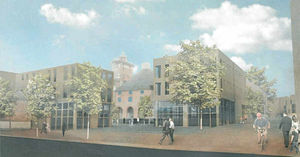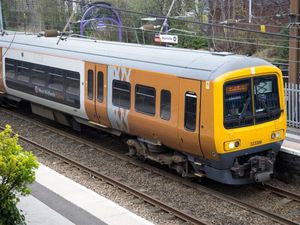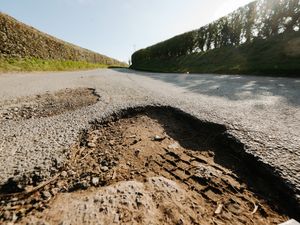First glimpse of plan for Shrewsbury Flax Mill's future
This is the first look at the latest images of the ambitious multi-million pounds plans to bring Shrewsbury's historic Flax Mill back to life.

A range of new pictures have been posted on the Flax Mill Shrewsbury Facebook page to give residents a better idea of what is being proposed.
The latest CGI images show how the revamped site would look when approached from the town centre, as well as close-ups the Main Mill's transformation.
The pictures also give a glimpse of what the Main Mill would look like inside when part of it is made available as office space.
As Shropshire Council and its partners in the scheme move towards submitting bids for a combined £18 million to bring the regeneration scheme to life, a new online survey has been launched to help get the views of the county's business community on what the site should include.
A spokesman for Shropshire Council said: "As we move forward with this exciting regeneration project to bring back into commercial use the world's first skyscraper, it is important everyone knows how things are going and can contribute their views and ideas.
"We're currently mostly thinking in terms of office space but what type of offices? Or are you thinking of something else entirely? We'd love to hear from you."

Among the questions on the survey, which is running on Shropshire Council's website, are what type of businesses would serve the space well and whether company bosses would be willing to pay higher rents for being based at the Flax Mill.
A series of tours of the site for businesses have been arranged for the next few months, with the next tour taking place on Wednesday.
Under current plans, the top three floors will be rented to businesses and other organisations, helping subsidise running costs.
Campaigners hope to see businesses, arts groups, bars, restaurants and, eventually, homes created. If funding is secured, redevelopment is due to start in August 2013.
It is hoped £11.6 million can be obtained from the Heritage Lottery Fund to fund the first stage of the work – with an additional £6 million potentially available from the European Regional Development Fund.
If the scheme gets the go-ahead, it is hoped that it will bring about 1,000 new jobs.




